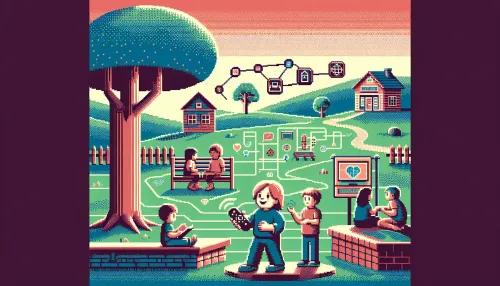Elevating Voices: Celebrating Cultural Resonance in Autism Care for Diverse Communities

Autism care is a multifaceted area that benefits immensely from embracing and celebrating the cultural diversity within communities. By adapting traditional wisdom, merging indigenous methodologies with modern techniques, and harmonizing community support through culturally rooted programs, we can create an inclusive and impactful support system for autistic children.
Adapting Tradition: Time-Honored Wisdom in Autism Support
In many cultures, traditional practices have long been intertwined with caring for individuals with unique needs, including those on the autism spectrum. These time-honored wisdoms often emphasize community involvement, acceptance, and tailored approaches to individual care. Integrating traditional knowledge into modern autism support programs can provide a strong foundation for building rapport and trust with families from diverse cultural backgrounds.
Indigenous communities around the world possess rich knowledge systems and holistic approaches to health and well-being. By fusing these indigenous methodologies with state-of-the-art techniques in autism care, we can create comprehensive interventions that reflect the cultural identities of the children they serve. This approach not only enriches the therapeutic process but also ensures that interventions are respectful of diverse cultural values and belief systems.
Fusing Indigenous Methodologies with Modern Techniques
Music has a universal language that transcends cultural boundaries, making it an ideal medium for supporting autistic children within diverse communities. Culturally sensitive music programs can provide a platform for children to express themselves, build confidence, and connect with their heritage in inclusive settings. Whether through traditional instruments or modern adaptations, music programs offer a unique way to celebrate the abilities and talents of autistic children.
Related Article: Cultivating Compassionate Communities: Collaborative Efforts in Fostering Inclusive Environments for Autistic Children
Musically Yours: Community Support through Music Programs
Embracing technological progress while honoring cultural heritage is essential in creating autism care practices that resonate with diverse communities. By blending cultural elements into assistive technologies and intervention strategies, we can ensure that the care provided is not only effective but also respectful of the diverse identities of autistic children. This innovative approach fosters inclusivity while leveraging advancements in technology to enhance the quality of care.
Celebrating Unique Identities in Autism Care Practices
Every child's journey with autism is shaped by their unique cultural narratives and identities. Recognizing and celebrating this global mosaic is crucial in promoting acceptance and understanding within autism care settings. By acknowledging the diverse cultural backgrounds of autistic children, we can create environments that respect and validate their identities while fostering a sense of belonging within their communities.
Cultural sensitivities play a pivotal role in providing effective support for autistic children within multicultural settings. Approaches that acknowledge and accommodate diverse cultural norms, values, and communication styles empower families to actively engage in their child's care. Creating culturally sensitive support systems fosters trust, promotes collaboration, and ultimately enhances the overall well-being of autistic children from diverse backgrounds.
Related Article: The Intersection of Emotional Intelligence and Teamwork: Unveiling the Power of Collaboration in Autism Support
The Global Mosaic: Cultural Narratives in Autism Journeys
In conclusion, celebrating cultural resonance in autism care for diverse communities is an enriching journey that demands an inclusive mindset and a deep appreciation for the intersection of tradition, culture, and modernity. By weaving together time-honored wisdom, indigenous methodologies, community-based programs, technological advancements, and multicultural approaches, we can create holistic support systems that honor the diverse identities of autistic children worldwide.
Frequently Asked Questions
Cultural sensitivities are crucial in autism support as they help accommodate diverse norms, values, and communication styles. By recognizing these differences, support systems can empower families to engage actively in their child's care, fostering trust and collaboration. This approach ultimately enhances the well-being of autistic children from various cultural backgrounds.
Indigenous methodologies can significantly enhance autism care by integrating holistic approaches that respect cultural identities. Fusing these traditional practices with modern techniques creates comprehensive interventions that reflect the children's cultural backgrounds, enriching the therapeutic process and ensuring that care is both effective and culturally respectful.
Music serves as a universal language that transcends cultural boundaries, making it an effective medium for supporting autistic children. Culturally sensitive music programs allow children to express themselves, build confidence, and connect with their heritage in inclusive environments, celebrating their unique abilities and talents.
Check Out These Related Articles

Cultural Resonance and Inclusion: Redefining Autistic Identities and Perspectives Globally

Breaking Barriers: Out-of-the-Box Approaches to Addressing Social Challenges Faced by Autistic Children

Building Resilience: Stories of Triumph and Strength in Autistic Children
